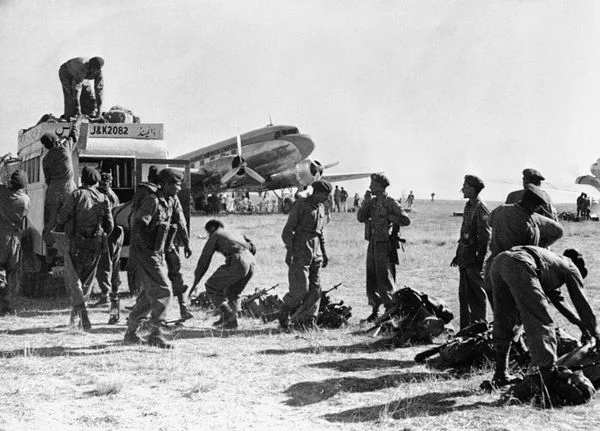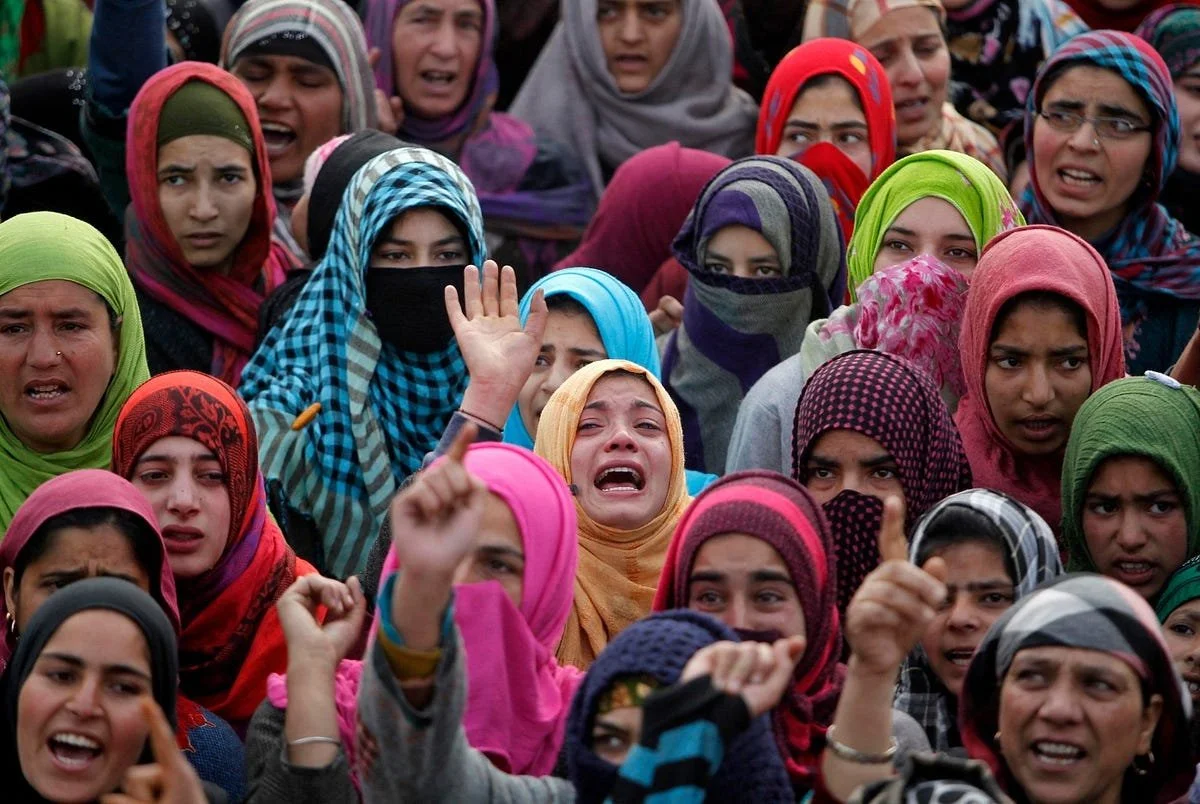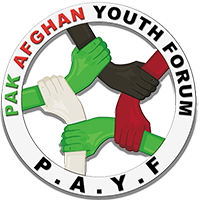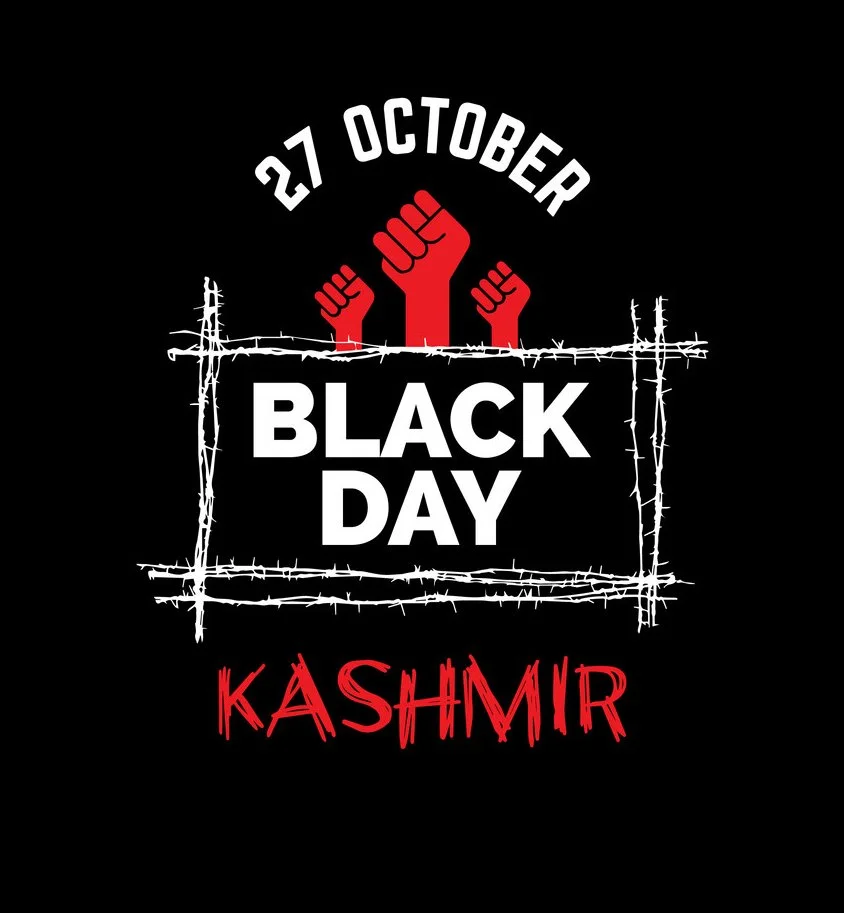October 27, 1947—the day that marked the beginning of a struggle for identity, freedom, and dignity. This is the story of Kashmir Black Day & why it continues to matter deeply, today and every day.
Today, as the world moves on, Kashmir remembers a wound that never healed.
The Kashmir issue dates back to the partition of British India in 1947. With Kashmir’s majority-Muslim population, there was hope it would join Pakistan. However, the accession to India under disputed conditions sparked years of tension and unrest.
![Frontline troops of the Indian Army fighting in Kasur sector of Pakistan. [Indian Express Archives]](https://pkafgyouthforum.com/wp-content/uploads/2024/10/Ga5VH-UWAAAZ1c6.webp)

![Indian Army troops seen watching for raiders in Kashmir 1 December 1947 [Alamy]](https://pkafgyouthforum.com/wp-content/uploads/2024/10/Ga5VMgIXYAAObUL-e1730107555123.webp)
The Human Cost of Conflict in Kashmir
The toll of conflict is staggering: over 100,000 deaths since 1989, with nearly 7,000 people dying in custody under harsh conditions. These aren’t just statistics but lives lost and families broken—each loss reflecting the heavy price of Kashmir’s struggle.
Sexual Violence Against Women
Women in Kashmir have been particularly vulnerable, with reports of over 11,000 cases of sexual violence as a tool of oppression. Incidents like the 1991 Kunan-Poshpora mass assault stand out as horrifying symbols of brutality, leaving scars that persist across generations.

Also See: OIC Calls for Protection of Kashmiris in IIOJK
Unheard Cries: Enforced Disappearances
The UN has repeatedly documented human rights abuses in Kashmir. Their 2018 and 2019 reports shed light on enforced disappearances, torture, and restricted freedoms. But global action remains limited, and the cries of Kashmiris echo with little response from the international community.
Over 8,000 Kashmiris have been disappeared, leaving their families in a torturous state of not knowing. Mothers, fathers, and children wait indefinitely, caught between hope and despair. These disappearances speak to a haunting reality few outsiders can fully grasp.
Voices of Resistance
Throughout Kashmir’s history, leaders have emerged who embodied the resilience and spirit of the people. Figures like Mirwaiz Maulvi Farooq & Abdul Ghani Lone lost their lives fighting for justice, while others like Syed Ali Shah Geelani remained steadfast until his last days.
Today, voices like Mirwaiz Umar Farooq, Aasiya Andraabi & Yasin Malik continue the struggle, even from behind bars. Their sacrifices remind us that Kashmir’s fight for freedom is a story of courage, resilience, and an unwavering will for justice.
Pakistan’s Commitment to Kashmir
For Pakistan, this is not merely a political issue but a moral responsibility. Pakistan continues to support Kashmir’s right to self-determination, pushing for a peaceful resolution that aligns with UN resolutions and honors Kashmiris’ voices above all.
![Pakistan observes Youm-e-Istehsal to protest Indian actions in Kashmir [APP]](https://pkafgyouthforum.com/wp-content/uploads/2024/10/Ga5WqrLWMAAbnjw.webp)
A Global Call
Kashmir Black Day is more than a reminder of occupation; it’s a call for the world to recognize and act on the human suffering in Kashmir. Beyond borders and politics, it’s about people who dream of living in dignity, free from fear and injustice.
PAYF Insights are social media threads by various authors, reproduced here for wider consumption.



